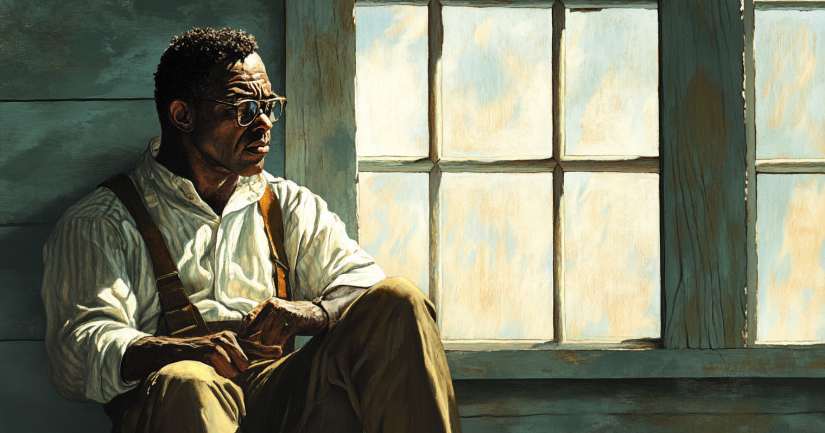
Timeless, sharp, and deeply human, the To Kill A Mockingbird Quotes Quiz challenges how well you remember Harper Lee’s most powerful lines. From courtroom testimony to front-porch wisdom, the novel is filled with phrases that still echo today. Whether it’s Atticus reminding us to walk in another’s skin or Scout offering childlike insight, every quote carries emotional weight. This quiz invites you to identify, interpret, and reflect on the words that shaped generations of readers.
To Kill A Mockingbird Quotes Quiz goes beyond simple memory recall. It tests your ability to match quotes with characters, contexts, and deeper meanings. You’ll be asked not only who said what but why those words matter. These lines reveal theme, expose tension, and illuminate personal growth. Whether the speaker is wise, confused, cruel, or kind, their words leave a lasting impact. This quiz helps you revisit Maycomb’s most defining moments—through the voices that made them unforgettable.
Loved diving into the book’s memorable lines? Keep exploring with the To Kill A Mockingbird Character Quiz, or check out our To Kill A Mockingbird Literary Devices Quiz to understand Harper Lee’s style choices.
It’s Time – To Kill A Mockingbird Quotes Quiz Awaits
Why Quotes Carry the Novel’s Moral Weight
Harper Lee’s language is precise, never wasted. Her most iconic quotes express the novel’s major themes: empathy, justice, childhood, and truth. Atticus’s courtroom remarks are thoughtful, not loud. Scout’s questions often say more than the adults’ answers. Every line contributes to a larger emotional narrative.
This section of the quiz explores how Lee’s characters use language to show belief, pain, and principle. You’ll examine which quotes reflect integrity, fear, or slow personal change.
Atticus Finch: Voice of Steady Wisdom
Atticus says little but when he speaks, people listen. His quotes shape the moral foundation of the book. From teaching Scout to practicing courtroom courage, his words never seek attention. They aim for clarity. They serve justice.
To Kill A Mockingbird Quotes Quiz includes lines that reveal Atticus’s steady voice. You’ll test how well you remember not only what he said, but what those moments meant for his children and his town.
Scout’s Narration: Innocence with Depth
Scout’s narration guides the novel with honesty and curiosity. Her voice grows wiser as the story unfolds, but her early observations carry surprising insight. Some of the novel’s most memorable quotes come from Scout’s attempt to understand a world that often makes no sense.
This portion of the quiz helps you trace how her voice changes. You’ll explore how Harper Lee balances youthful simplicity with emerging complexity through Scout’s key lines.
Moments of Cruelty and Compassion
Not all quotes are uplifting. Bob Ewell, Mayella, and even Mr. Gilmer say things that sting. Their words reveal the harsh truths of racism, pride, and fear. On the other side, Miss Maudie, Calpurnia, and Dill offer moments of gentleness, protection, or wonder.
This quiz section asks you to match quotes with tone and motive. You’ll reflect on how a single sentence can expose a character’s values or their insecurities.
Understanding Theme Through Language
Many of the novel’s key messages are delivered through short, powerful quotes. From the mockingbird metaphor to lessons on courage, Lee uses dialogue and narration to reinforce core ideas. These themes are never announced. They’re revealed one sentence at a time.
To Kill A Mockingbird Quotes Quiz includes questions that help you connect individual lines to larger messages. You’ll analyze how Lee plants thematic seeds and lets them grow quietly, scene by scene.
Fun Facts About the Novel’s Most Famous Quotes
- “You never really understand a person…” is quoted in thousands of classrooms and leadership books worldwide.
- Gregory Peck’s delivery of courtroom lines helped Atticus become the most admired lawyer in film history.
- Harper Lee once said she spent more time crafting Atticus’s dialogue than any other character’s.
- The phrase “it’s a sin to kill a mockingbird” is first spoken by Atticus, then reinforced by Miss Maudie.
- Scout’s line “Hey, Boo” was unscripted in rehearsal and kept for its emotional simplicity.
- Many famous quotes from the novel are actually internal narration, not spoken aloud by characters.
Are You Ready to Match the Words to Their Truth?
Great literature isn’t remembered for plot alone it’s remembered for the words that stay with us. To Kill A Mockingbird Quotes Quiz challenges you to recall the lines that made you think, question, or feel something deep. Because each quote in this novel isn’t just a sentence—it’s a step in a journey.
Take the quiz now to test how well you remember who spoke the truth, who tried to hide it, and who quietly lived it. Because sometimes, one sentence can reveal more than an entire chapter ever could.
Test your knowledge with the To Kill a Mockingbird Book Quiz or explore more To Kill a Mockingbird Quizzes for even deeper insights!
To Kill A Mockingbird Quotes – FAQ
Quotes in “To Kill a Mockingbird” serve as powerful reflections of the novel’s themes, characters, and social commentary. They encapsulate key moments and emotions, allowing readers to grasp the complexities of moral integrity, racial injustice, and childhood innocence. By highlighting pivotal dialogue, quotes enhance the overall impact of the narrative and encourage deeper understanding of the characters’ struggles.
Atticus Finch stands out as the character with the most memorable quotes. His wisdom and moral courage resonate throughout the story, particularly his famous declaration about empathy: “You never really understand a person until you consider things from his point of view.” This quote embodies the novel’s central lesson on compassion and understanding, making Atticus a timeless figure in literature.
One poignant example is Atticus’s assertion, “The one thing that doesn’t abide by majority rule is a person’s conscience.” This quote encapsulates the essence of individual morality versus societal expectations, a recurring conflict in the novel. It encourages readers to reflect on their own values and the importance of standing up for what is right, regardless of popular opinion.
